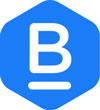
|
Design, Technology , and Engineering benefitting individuals
with disabilities and older adults in the local community |
January 30, 2023 |
|
|
|
|

Perspectives is the newsletter of the
Stanford course,
Perspectives in Assistive Technology.
Week 4 Class Sessions
This newsletter issue describes the Week 4's class
sessions.
|
Perspectives in Assistive
Technology is a Winter Quarter Stanford course - entering its
seventeenth year - that explores the design, development, and use of
assistive technology that benefits people with disabilities and older adults.
It consists of semi-weekly in-person discussions; lectures by
notable professionals, clinicians, and assistive technology users; a field
trip to an accessible inclusive playground; an Assistive Technology
Faire; and student project presentations and demonstrations.
Course website. |
Week 4
Course News

Student Enrollment -
Enrollment is now closed with 40 students - of which 34 are working on Team
Projects, 2 on Individual Projects, and 4 just attending
lectures. |

Guest Lecturer
Schedule - The schedule of guest lecturers has been finalized. For
more information about each presenter and their topic, browse to the course
lecture schedule webpage. Community members are
welcome to attend class sessions on campus starting with the first one next
week on Tuesday, January 10th. Maps and
direcrions. Masking may be required. There will not be a concurrent Zoom
broadcast. |
Week 4 In-person Class Sessions
|
Tuesday, January 31st at 4:30pm
PST
|

|
Bionic Ears: Cochlear
Implants and the Future of Assistive Technology
Lindsey Dolich Felt, PhD
Stanford University - Program in Writing and
Rhetoric |
Abstract: "In this talk, I will share my personal
experience as a user with cochlear implants, and discuss the history and future
of this device's development. Introducing historian of science and technology
Mara Mills' term "bionic rhetoric," I will explain how the cochlear implant
negotiates two different strains of thinking in assistive technology design:
normalization and enhancement. My talk will conclude with a discussion of how
this rhetoric gets metabolized in literary and popular discourse, and how these
narratives illuminate how people with disabilities use - and even hack - their
assistive technologies."
Biosketch: Lindsey Dolich Felt is a
lecturer in the Program
in Writing and Rhetoric at Stanford University. She received her PhD in
English from Stanford University in 2016, and holds a BA from Haverford
College. Before coming to Stanford, she worked as a journalist for ESPN the
Magazine and ESPN.com.
Her research interests include contemporary American
literature, media culture, science fiction, science and technology studies, and
disability studies. She is currently researching how disabled bodies crucially
shaped conceptions of electronic communication in the post-WWII era, and has
written articles on female hackers in Cyberpunk fiction, and the little known
history of the first cybernetic limb and its influence on communication
engineering in the early Cold War era.
Her course, "Unruly
Bodies: Gesturing Toward a New Rhetorics of Body Language" explores how
advances in science, technology, medicine, and culture have transformed our
understanding of disability, normalcy, and health. |
|
Thursday, February 2nd at
4:30pm PST
|

|
From DIY to Disability
Dongles: Spanning Accessibility Space from Indispensable to
Irrelevant
Joshua A. Miele, PhD
Amazon Lab126 - Accessibility
Researcher |
Abstract: "I plan to use real world examples and
counterexamples to illustrate basic - but-critical - do's and don’ts of
the accessibility design process."
Biosketch: Joshua A. Miele received BA
(1992) and PhD (2003) degrees from the University of California at Berkeley.
From 2007 to 2019, he worked at the Smith-Kettlewell Eye Research Institute as a
principal investigator and as the associate director of research and
development. Josh also served as the president of the board of directors for
San Francisco’s LightHouse for the Blind and Visually Impaired
(2011–2015). Currently, he is an accessibility researcher at Amazon
Lab126, where he has contributed to projects such as Braille compatibility with
Fire tablets and a “Show and Tell” feature on camera-enabled Echo
devices that can identify pantry and food items. Josh's goal is to create
effective and affordable solutions to everyday problems blind people face,
particularly access to digital information. He received a
MacArthur
Foundation Fellow Award in 2021. |
Upcoming In-person Class Sessions
Assistive Technology Faire Vendors
Wanted

You are invited to participate
in the Assistive Technology Faire - This eleventh annual
course event is scheduled for Tuesday, February 28th and will provide an
opportunity for students and community members to get an up-close look at a
variety of assistive technology devices and learn about available services.
Users of assistive technology products as well as small companies
and agencies serving individuals with disabilities and older adults are
encouraged to join in on this event. Browse to the Call
for Assistive Technology Faire Participants webpage for more information
and contact me to register as a vendor.
Eleven vendors have
committed to participate this coming year. Here is the
line up and
slides from last year's virtual
Faire.
|
Please contact me with your ideas, questions, comments,
and project suggestions - or just to say hello. Please continue to stay safe
& healthy.
Dave Jaffe - Course Instructor
|

To unsubscribe from this newsletter, please email
Dave. |
|



















